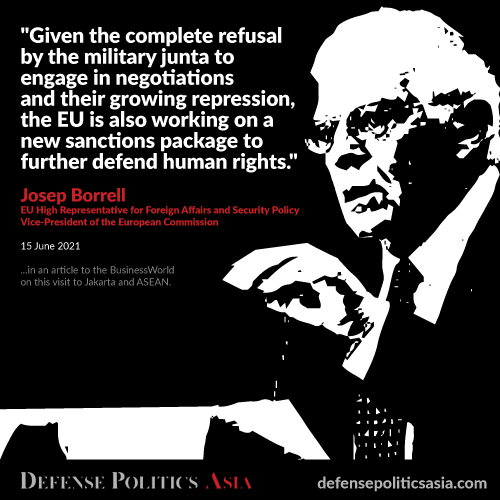[ BusinessWorld ] The European Union and ASEAN are natural partners and have a common agenda
“The EU launched in April 2021 an Indo-Pacific strategy, with one key message: we want to step up our engagement and work with our partners to boost trade and investment, economic openness, and a sustainable approach to connectivity in the region. Besides being an economic powerhouse, the EU is also ready to be a political and security actor in the region and to do more work on strategic and security issues, in particular maritime security. We already have a dialogue with ASEAN on maritime security cooperation, and are currently extending our Critical Maritime Routes Program, which strengthens regional maritime surveillance capacities from the Indian Ocean to South East Asia. We are also exploring options to enhance the EU’s maritime presence in the vast Indo-Pacific space.
Furthermore, we have to step up cooperation to respond to the ongoing “democratic recession” worldwide and the growing attacks on pluralism and political freedoms. Myanmar is the most dramatic case in point in this regard in South-East Asia. The EU looks to ASEAN leadership in this situation and we are ready to back more regional engagement. Given the complete refusal by the military junta to engage in negotiations and their growing repression, the EU is also working on a new sanctions package to further defend human rights. Many countries and certainly the people in this region share our view: these values and principles are universal and people should determine their own political future and have their rights protected. Often, as we see in Myanmar, the erosion of such rights and freedoms comes with severe consequences for one’s personal safety and security.”


